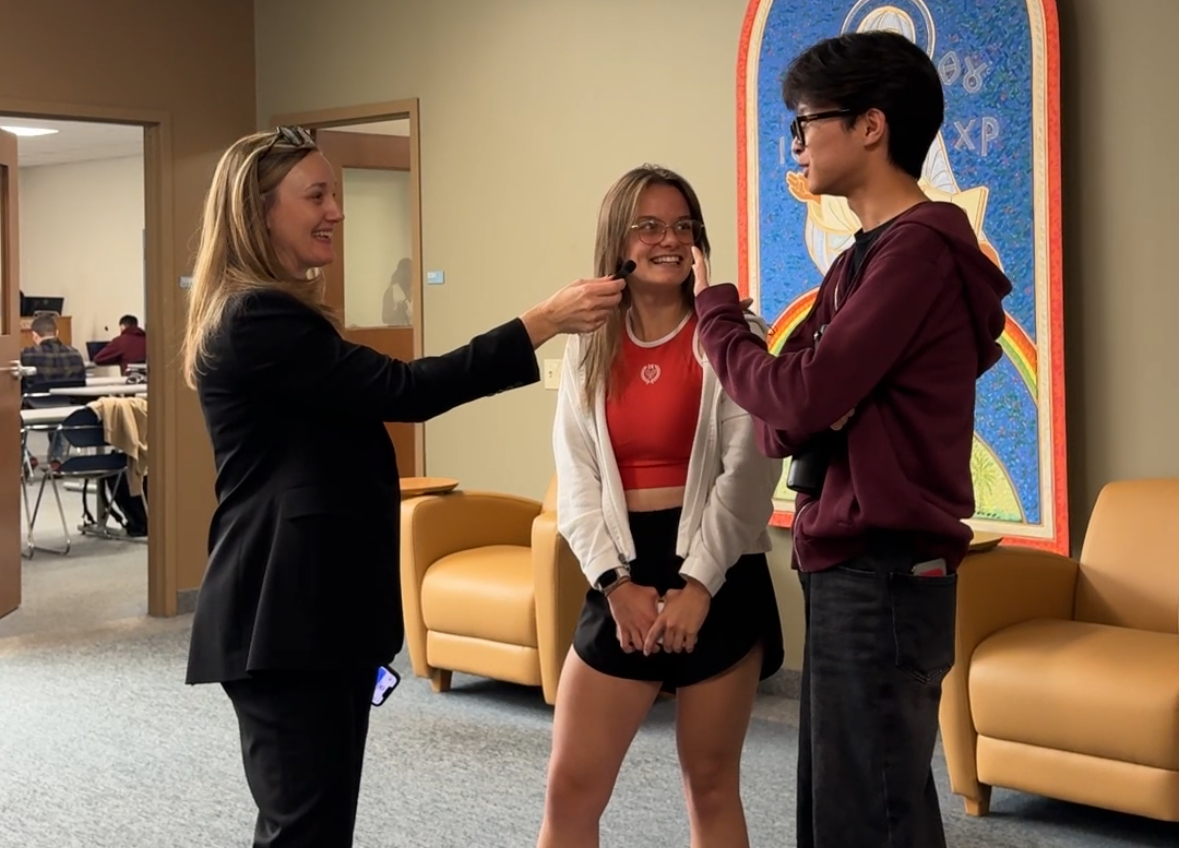April 25, 2025/Midnight
Originally published in print April 14, 2025
Erie, Pa.— Gannon University is home to over 2,000 students at any given time of year. Within this student body, a variety of different people exist.
We are united through our pursuit of education at Gannon University. However, our differences may lie in our ages, career choices, races, faiths, or a plethora of other things. In every aspect that we are different, there is one where we are similar. In Roundtable, we explore the similarities and differences in the thoughts and opinions of Gannon students.
It seems like a new advancement in Artificial Intelligence (AI) is happening every week. Yet, opinions on AI vary widely. The Pew Research Center states, “Fully 56% of AI experts surveyed say AI will have a very or somewhat positive impact on the United States over the next 20 years.
This compares with 17% among the public. Conversely, 35% of U.S. adults believe AI will negatively affect the country over the next two decades, compared with 15% of experts.”
This week, three students were asked about their opinion on AI. Do they believe that AI is the future, or just a fleeting technological trend?
Stephanie Hovey, a first–year majoring in legal studies, explains, “I think there’s a lot of layers to it. It’s got a lot of good aspects and bad aspects. I think it can be kind of scary for people. I don’t really use it personally, but I know some of my teachers use it to make assignments up, which I think is a pretty cool, effective use of it. I guess I don’t necessarily have a positive or negative opinion of it, maybe if I used it more I would. I think that for people that use it in a productive way it’s really good, and the negative implications just come from people using it in a bad way.”
She adds that on the topic of the future of AI, “I think when anything is kind of advancing quickly like this, people can get in their heads about it and think it’s going to take over everything. But I’m pretty sure I read a quote…about how AI can never have the creativity that humans do, so it’s never really going to replace human ingenuity in that sense. I think there’s definitely a lot of things it can replace.”
She adds, “I think it is the future in some ways, but there’s always going to be human elements that are needed in society.”
Mari Phan, a student graduating from the English as a Second Language program this semester, and studying biology next semester, explains, “I like to use AI because it can help me to save time when I do research.”
However, Phan expresses her concern about original art made by people being used to train AI technology. “I don’t like my work to be used for AI training.”
Daniel Sherwood, a first–year majoring in math says, “I think it can be helpful at times, in research, for example. I think in general it should be avoided for the most part, because I think it’s often a lazy option when it comes to things like research and stuff like that.”
He adds, “I do use it sometimes, not often. Just when looking something up on the internet, I’ll use the AI textbox at the top of the browser when I look something up.”
Artificial Intelligence continues to advance quickly. While many approve of some of the uses of AI, others have rapidly growing concerns.








